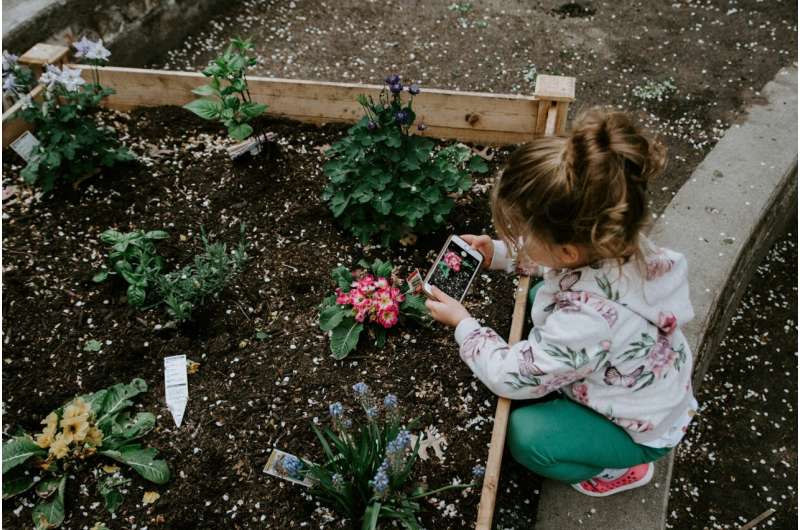This article has been reviewed according to Science X's editorial process and policies. Editors have highlighted the following attributes while ensuring the content's credibility:
fact-checked
trusted source
proofread
Transforming early learning through curiosity and interest

The key to boosting a child's cognitive and emotional development lies in promoting an active interest in topics or activities, Griffith University researchers have found.
The study
, published in Early Child Development and Care, delved into the ways curiosity evolved into sustained interest and led to a long-term culture of learning. Run over three years, the study engaged 57 children aged 4 to 5 years in two-week-long enrichment programs for 15 separate topics, to gain insights on how
Lead researcher, Dr. Christa van Aswegen from Griffith's School of Education and Professional Studies, said a child's early years were a highly sensitive period of development.
"Young children are naturally curious, but curiosity needs a spark—something that piques interest," she said. "Those years are the most important for developing interest because the brain is at its most malleable and impressionable."
The research found the initial spark of curiosity usually came from social interaction with a parent, guardian, grandparent, teacher, or friends, with these contacts providing an initial "hook" by sharing something interesting with the child.
For example, parents could provide a spark of interest in birds by pointing out different types of birds in a garden or park, telling the child the name of each bird and bringing their attention to the call each bird makes.
"There are two important parts to developing an authentic interest in a topic— knowledge and emotion," Dr. van Aswegen said. "Knowledge means intentionally providing children with terminology and basic concepts that will allow them to share ideas and thoughts on specific topics, supporting cognitive development.
"Emotion prompts them to feel something for the subject matter, such as the birds in the earlier example, and by experiencing feelings of wonder, awe, compassion or simple joy and delight, children learn to care about the topic, increasing its value and their connection with it, which supports emotional development."
Real-life experiences with family and friends are essential, but the research highlighted the value of diverse learning materials including images, stories, documentaries, art and music in furthering interest development.
It also found there was great value in promoting interest in a wide range of topics, with Dr. van Aswegen emphasizing the need for educators to focus on interest development in early years, as it provided many starting points for learning and a network of knowledge from which a child could navigate the world.
"While extrinsic motivation initially drives interest, children transition to intrinsic motivation as their curiosity deepens, leading them to independently seek answers and ask questions," she said. "The more interesting a topic became to a child, the more questions they would ask, or seek answers to independently, leading to a cycle of repeated engagement and a culture of learning."
More information: Ellie Christoffina van Aswegen et al, The impact of interest: an emergent model of interest development in the early years, Early Child Development and Care (2023). DOI: 10.1080/03004430.2023.2245575
Provided by Griffith University





















